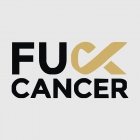-
 +3 +1
+3 +1KETO for Cancer is REAL! Research Update - 2024
-
 +38 +4
+38 +4The cancer research flaw uncovered by a Sydney student
Undergraduate Danielle Oste found something thousands of scientists had overlooked.
-
 +10 +1
+10 +1Accelerated aging linked to cancer risk in younger adults, research shows
Researchers looking for clues to why some types of cancer are on the rise in younger adults say they’ve found an interesting lead — a connection to accelerated biological aging.
-
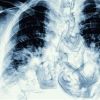 +25 +1
+25 +1Spontaneous Smoking Cessation Before Lung Cancer Diagnosis
We have observed that many patients with lung cancer stop smoking before diagnosis, usually before clinical symptoms, and often without difficulty. This led us to speculate that spontaneous smoking cessation may be a presenting symptom of lung cancer.
-
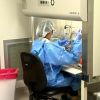 +36 +5
+36 +5Cancer vaccine with minimal side effects nearing Phase 3 clinical trials
Dr. Thomas Wagner, founder of the biotech company Orbis Health Solutions and cancer researcher, has made it his life's mission to find a way to treat cancer without the dreaded side effects that, for some, can become worse than the cancer itself or may even lead to an earlier death. "The tragedy of cancer is not just that person, the diagnosis, but it's also the fear of the therapy," Wagner told ABC News. This can cause a range of side effects including hair loss, nausea, vomiting, or may knock out a person's immune system putting them at risk of life-threatening infections, Wagner said.
-
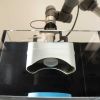 +39 +5
+39 +5Tumor-destroying sound waves receive FDA approval for liver treatment in humans
The U.S. Food and Drug Administration has approved the use of sound waves to break down tumors—a technique called histotripsy—in humans for liver treatment.
-
 +34 +6
+34 +6England to roll out world's first seven-minute cancer treatment jab
Britain's state-run national health service will be the first in the world to offer an injection that treats cancer to hundreds of patients in England which could cut treatment times by up to three quarters. Following approval from the Medicines and Healthcare products Regulatory Agency (MHRA), NHS England
-
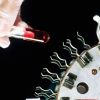 +18 +3
+18 +390% of patients respond to new blood cancer treatment in trial
Anew cancer therapy developed at Jerusalem’s Hadassah-University Medical Center had a 90% response rate in a new clinical trial, with over half of patients going into total remission. The CAR-T therapy — which arms the body’s own immune cells to fight cancer — was able to send multiple myeloma, an extremely deadly cancer that impacts the immune system, into remission.
-
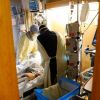 +4 +1
+4 +1'AI doctor' better at predicting patient outcomes, including death
Artificial intelligence has proven itself useful in reading medical imaging and even shown it can pass doctors' licensing exams. Now, a new AI tool has demonstrated the ability to read physicians' notes and accurately anticipate patients' risk of death, readmission to hospital, and other outcomes important to their care.
-
 +18 +2
+18 +2"Writing Is My Therapy"
Essay - expressive writing to cope with cancer.
-
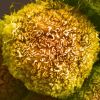 +12 +3
+12 +3Pancreatic Cancer Vaccine Shows Promise in Small Trial
Using mRNA tailored to each patient’s tumor, the vaccine may have staved off the return of one of the deadliest forms of cancer in half of those who received it.
-
 +26 +2
+26 +2Your Body Killed Cancer 5 Minutes Ago
-
 +4 +1
+4 +1Cannabis and cancer: Study finds that marijuana can help reduce pain
People with cancer who use cannabis to reduce symptoms have less pain, get better sleep, and can think more clearly, according to a study completed at the University of Colorado at Boulder and published in the journal Exploration in Medicine.
-
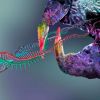 +2 +1
+2 +1CRISPR-edited fat shrank tumors in mice. Someday, it could work in people, scientists say.
Fat sucked out of the body and tweaked with the gene-editing tool CRISPR could be used to treat cancer, a study of mice and transplanted human tissues hints. However, it remains to be seen whether the experimental therapy would be safe and effective in people.
-
 +17 +3
+17 +3An experimental cancer trial in France is getting a boost from the Gates Foundation: ‘Potential game-changer’
The Bill & Melinda Gates Foundation is known for spending billions to fight infectious diseases in developing countries, so a new investment in a French biotech company feels somewhat unusual. Smart Immune will receive $5 million from the foundation, according to the Financial Times. The company has developed a thymus-empowered T-cell therapy platform, called ProTcell, “to fully and rapidly re-arm the immune system.”
-
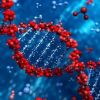 +20 +2
+20 +2DNA traces of ancient viruses may help fight cancer, study finds
Remnants of ancient viruses passed down over thousands or even millions of years in human DNA could help fight cancer, a study has found. Scientists at the Francis Crick Institute were studying lung cancer, the leading cause of cancer-related deaths globally, to understand why some patients respond better than others to immunotherapy.
-
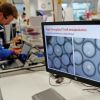 +13 +1
+13 +1Scientists have successfully engineered bacteria to fight cancer in mice
Researchers at Stanford Medicine have made a promising discovery that could lead to new cancer treatments in the future. Scientists conducted tests in which they altered the genomes of skin-based microbes and bacteria to fight cancer. These altered microbes were swabbed onto cancer-stricken mice and, lo and behold, tumors began to dissipate.
-
 +20 +4
+20 +4'Life-changing' cancer drug that can help patients live longer approved for NHS use
Olaparib targets cancers with BRCA 1 or BRCA 2 mutations, stopping cancer cells from being able to repair their DNA, which in turn causes the cancerous cells to die.
-
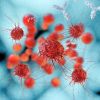 +3 +1
+3 +1New blood test could spare cancer patients from needless chemotherapy after surgery
We have no reliable way of knowing which patients’ cancer will return after surgery, so often chemotherapy is given to mop up any remaining cancer cells that may have gone undetected.
-
 +8 +3
+8 +3One-hour operation could cure prostate cancer by destroying tumours with electric currents
Pioneering treatment has been used to treat the disease for the first time on the NHS, and may offer hope to thousands of men
Submit a link
Start a discussion





















